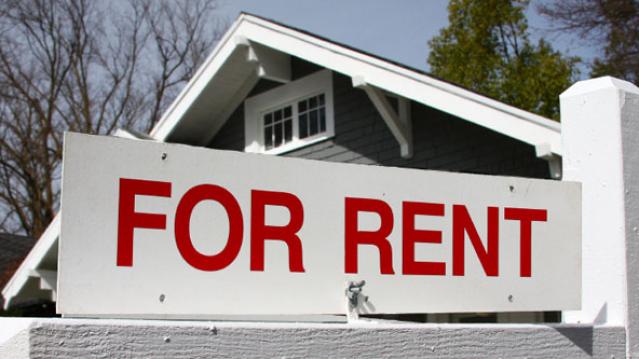More Americans Struggling to Pay the Rent

As the portion of Americans renting rather than owning their homes has grown in recent years, so has the number of Americans for whom the monthly rent check has become a burden.
In 2013, almost half of all renters were spending more than 30 percent of their income on housing, with more than a quarter paying half their income to their landlord, according the "State of the Nation’s Housing 2015" report issued today by the Harvard Joint Center for Housing Studies.
Rising rents aren’t just impacting low-income consumers. One in five renters earning $45,000-$75,000 is paying at least a third of their income in rent.
Related: There’s Only One Way Rents Will Go: Sky High
The increase in rental rates represents a byproduct of the falling home ownership rate, which dropped to 63.7 percent in the first quarter of this year, the lowest level since 1989. The rate has fallen for the past eight years and appears poised to continue its decline.
That puts the 2010s on pace to be the strongest decade for rental growth in history, and the national vacancy rate fell to just 7.6 percent, its lowest level in 20 years, according to the Harvard report. The trend reflects increased demand from millennials, as well as a growing preference for renting in households aged 45-64 and higher-income households.
Rents rose 3.2 percent last year, twice the rate of overall inflation, spurring builders to begin construction on more multi-family units than in any years since 1989. “And if job growth continues to pick up, we could see even more demand, as young adults move out of their parents’ homes and into their own apartments,” Joint Center senior research associate Daniel McCue said in a statement.
Deficit Hits $738.6 Billion in First 8 Months of Fiscal Year

The U.S. budget deficit grew to $738.6 billion in the first eight months of the current fiscal year – an increase of $206 billion, or 38.8%, over the deficit recorded during the same period a year earlier. Bloomberg’s Sarah McGregor notes that the big increase occurred despite a jump in tariff revenues, which have nearly doubled to $44.9 billion so far this fiscal year. But that increase, which contributed to an overall increase in revenues of 2.3%, was not enough to make up for the reduced revenues from the Republican tax cuts and a 9.3% increase in government spending.
Tweet of the Day: Revenues or Spending?

Rep. Kevin Brady (R-TX), ranking member of the House Ways and Means Committee and one of the authors of the 2017 Republican tax overhaul, told The Washington Post’s Heather Long Tuesday that the budget deficit is driven by excess spending, not a shortfall in revenues in the wake of the tax cuts. The Wall Street Journal’s Kate Davidson provided some inconvenient facts for Brady’s claim in a tweet, pointing out that government revenues as a share of GDP have fallen significantly since 2015, while spending has remained more or less constant.
Chart of the Day: The Decline in IRS Audits

Reviewing the recent annual report on tax statistics from the IRS, Robert Weinberger of the Tax Policy Center says it “tells a story of shrinking staff, fewer audits, and less customer service.” The agency had 22% fewer personnel in 2018 than it did in 2010, and its enforcement budget has fallen by nearly $1 billion, Weinberger writes. One obvious effect of the budget cuts has been a sharp reduction in the number of audits the agency has performed annually, which you can see in the chart below.
Number of the Day: $102 Million

President Trump’s golf playing has cost taxpayers $102 million in extra travel and security expenses, according to an analysis by the left-leaning HuffPost news site.
“The $102 million total to date spent on Trump’s presidential golfing represents 255 times the annual presidential salary he volunteered not to take. It is more than three times the cost of special counsel Robert Mueller’s investigation that Trump continually complains about. It would fund for six years the Special Olympics program that Trump’s proposed budget had originally cut to save money,” HuffPost’s S.V. Date writes.
Date says the White House did not respond to HuffPost’s requests for comment.
Americans See Tax-Paying as a Duty

The IRS may not be conducting audits like it used to, but according to the agency’s Data Book for 2018, most Americans still believe it’s not acceptable to cheat on your taxes. About 67% of respondents to an IRS opinion survey “completely agree” that it’s a civic duty to pay “a fair share of taxes,” and another 26% “mostly agree,” bringing the total in agreement to over 90%. Accounting Today says that attitude has been pretty consistent over the last decade.



